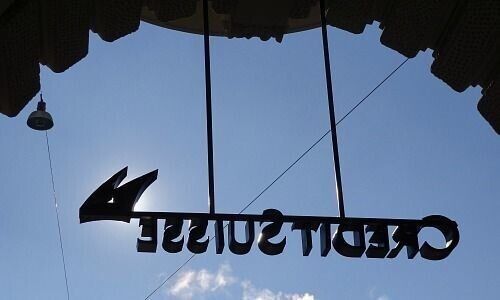Credit Suisse's Taster of Archegos Losses
The Swiss bank’s disastrous entanglement with Archegos was foreshadowed by a smaller yet worryingly sizable other hedge fund case last year.
Zurich-based Credit Suisse got a taste of what prime brokerage clients Archegos could wreak when it racked up $200 million in losses on another hedge fund which imploded, «The Wall Street Journal» (behind paywall) reported on Tuesday. The spring 2020 incident prompted changes in risk-monitoring which still haven’t been fully implemented at the Swiss bank, the outlet reported.
An internal review of Malachite, first reported by the «Financial Times» in April, revealed several weaknesses. Credit Suisse didn’t deeply understand how its hedge fund client’s strategy would do in market turmoil like that seen in the pandemic’s early days, the «WSJ» reported on Tuesday.
Series Of Events
It also lagged in monitoring and flagging how much margin the bank needed to cover its clients’ risk, as markets swerved. As a result, it was in the process of moving to a so-called dynamic margining system – but hadn’t done so by the time Archegos ran into trouble on its positions, the U.S. outlet reported.
The reporting depicts a series of events including the death of Jason Varnish, its head of prime brokerage risk, in February 2020 which culminated in the $5.5 billion on losses at Archegos. The bank had to tap weighty investors for a top-up, as a series of executives have resigned or been demoted or ousted.
Sitting On Stocks
Last year, Credit Suisse had replaced Varnish with Parshu Shah, who had previously been Archegos' sales person. Shah initially warned the investment banking unit's counterparty credit risk executives, though neither he nor the specialist team raised the issue further in the bank's hierarchy, the «WSJ» reported. Shah didn't comment to the outlet.
Eventually, Credit Suisse was sitting on huge stakes including 6.5 percent of ViacomCBS, because Archegos was a prolific user of total-return swaps. The bank reportedly took in just 16 million Swiss francs ($17.5 million) in fees from the client – which pales in comparison to the more than 3.54 billion francs in revenue that Credit Suisse's wider investment bank generated during the first quarter of this year alone.
Pandemic Backdrop
Credit Suisse is now involved in several regulatory investigations including in the U.S. and Switzerland and its risk-taking shackled. Chairman António Horta-Osório is overseeing a strategy review which is likely to result in mergers or acquisitions involving the 165-year-old Swiss bank.
The events around Malachite unfolded as Swiss banks were enlisted in a $42 billion lending bazooka to shore up the domestic economy after Covid-19 hit. Credit Suisse CEO Thomas Gottstein was instrumental in campaigning for the program as well as for its rollout.
Pitifully Low Income
By the time Archegos ran into trouble in March, Credit Suisse’s exposure to the family office-hedge fund topped $20 billion, according to the «WSJ». Yet the bank reportedly held just ten percent margin for instruments it traded with Archegos, less than the 15 percent that is required of U.S. houses.
It still isn’t clear why Credit Suisse was so slow in offloading the Archegos collateral compared with other banks like Deutsche Bank and Goldman Sachs. Both rivals escaped their prime brokerage dealings with the same client relatively unscathed. Crosstown rival UBS admitted it will suffer more than $800 million in losses with Archegos, spread over two quarters.



























